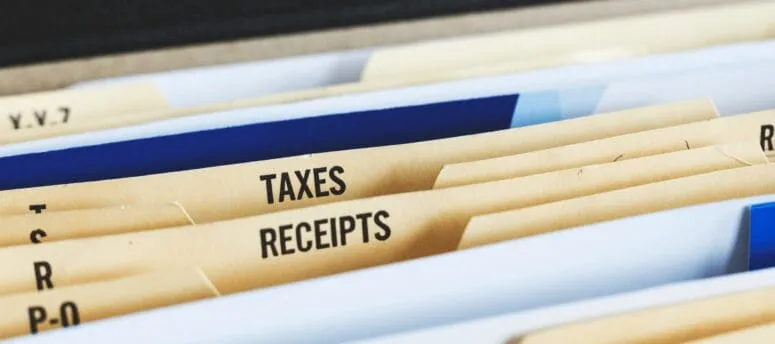Tax Implications of Fresh Roof Treatments in NC: A Comprehensive Guide

Chapter One: Tax Consequences on Roof Treatments in North Carolina
Are you a homeowner in North Carolina looking forward to roof treatments? Details of the tax consequences of repairing, maintaining, or replacing a roof should be also considered. The following comprehensive guide will lead you through the different tax incentives that are offered to the homeowners of North Carolina on roof treatments. From knowing how Roof repairs & Maintenance affect your NC taxes to studying tax advantages of Energy Effective Roof Coatings there can be nothing as beneficial for functioning-wise taxing reasons as what we offer within the realm of Roof taxes. Alright, let’s plunge deeper into the available tax advantage that any homeowner such as you in North Carolina can find out.
Exploring Roof treatment tax deductions – The case of NC
Another important thing that the residents of North Carolina need to know about roof treatments is that repairs and maintenance expenditures can entitled the homeowner to certain tax credits. For your North Carolina taxes, the cost related to repairing or even maintaining your roof is important since it comes with impacts to the expense by providing deductions an benefits that can assist in minimizing expenditure. Knowing tax consequences allows for good planning of the roofing investments and the available tax incentives must be fully utilized. Now, let us have a closer look at how different developments in the state of NC can affect its taxes and how different roof repair and maintenance services could be worthy of deductions.
The effect of roofing fixes and preservation on the NC Taxes
Regarding the need to maintain and repair of the roofs it is very crucial for the North Carolina homeowners to know how much they will be charged in terms of tax implications. The costs associated with roof repair and maintenance may bring possible deductions and benefits to alleviate its price and limit your gross income. This makes it easier for you to know how and when to invest in your roofing, as well as how to maximize the value of your tax breaks.
Here are a few key points to consider:
- Deductible Expenses: There are some circumstances where cost incurred in this area of the home may be tax-deductible on your North Carolina taxes. Such deductions can go along way in lowering your taxable income and therefore pay less in taxes.
- Qualifying Criteria: Nevertheless, it should be stressed that all expenses related to roof repairs and maintenance may not be tax-deductible. For this purpose, some precondition must be fulfilled as per the IRS rule and the law of North Carolina. This is general maintenance of your roof and comprises of repair works which are required to keep up the status of the roof in South Shields.
- Documentation and Record-Keeping: As with any type of repair and maintenance claim, documentation is the key to being able to successfully make deductions on a ruined roof. Such documents are invoices, contracts, and receipts, which describe details of services rendered, as well as the prices. These records should would help to substantiate your deductions in the event that the authorities come calling.
- Consulting a Tax Professional: It is important to note that most tax rules may be little bit technical and that the right to any of the above deductions may also depend on one’s individual situation. In any case, it is advisable to pay for help from a professional in taxes or an accountant, who can assist you depending on the characteristics of your case.
Through the use of evaluating the potential of roof repairs and maintenance on one’s taxes in North Carolina, one can be able to make the right decisions when it comes to the roof management and the most possible tax benefits that one maybe entitled to. As with anything tax related one should always consult an expert and be informed with all important taxation laws to avoid the legal pitfalls and maximize on the existing legal concessions.
North Carolina based Tax Advantages of Energy Efficient Roof Treatments
Using efficient roof treatments not only pays to the low effect North Carolina carbon footprint but also has the side effect of offering prospective tax credits. Here’s a closer look at the tax incentives available for energy-efficient roof improvements:
- Federal Tax Credits: The federal government has reward program of tax credit for some energy proficiency enhancements of which roofing material that complies with set standards is among them. These credits can be up to a percentage of the price of the different material so as to encourage people to take environmentally friendly products.
- State Tax Incentives: North Carolina also has state level tax credits for more energy efficient improvements including roof treatment. Some of these incentives could be tax credit, exemption or deduction to subsidize the cost of your energy efficient roofing system.
- Reduced Energy Costs: Roof treatments and coatings like cool roofs or solar reflective roofs could lower your energy usage by a great deal. Making your home more efficient will cut the amount of energy required to cool your house, thereby saving you money on your bills, and possibly lead to more deductions or tax credits.
- Local Utility Programs: Asides federal and state incentives available there may be some programs and incentives offered by local utility companies particular to North Carolina for roof treatment for energy efficiency. It can also offer cash aid, a grant or rebate on your energy bills aside from the various advantages that stem from improving your energy-efficient roofing system.
The reader should understand that there could be general eligibility criteria’s, deadlines, and necessary docs to these taxation benefits and sweeteners. To maintain strict adherence to the recommendations and get maximum savings one should address a professional tax advisor or qualified accountant. Thus, benefiting from these tax incentives you stay closer to a green future and benefit financially from such energy-saving roof treatment in North Carolina.
Facts That Every Homeowner Has to Learn About Roof Replacement Tax Deductions
When planning on undertaking a roofing project that involves a roof replacement, the following is imperative to know about tax deductions and incentives. It is now possible to effectively determine the tax saving possibilities resulting from energy-efficient roof treatments in North Carolina and make the right choice all for the purpose of saving more money. Here are some key points to keep in mind:
- Federal Tax Credits: Energy efficient changes such as qualifying roof replacements receive tax credits from the federal government. Generally, these credits can perhaps work to make a considerable reduction in the overall costs of the material and installation. Formerly, potential tax credits must meet the particular guidelines outlined by the Internal Revenue Service (IRS) for qualifying a roof replacement.
- State-Level Incentives: There are federal tax credits for energy-efficient roof treatments, but depending on the location of the house, North Carolina may also offer further incentives. These can be in the form of tax credit or other financial breaks such as refunds or rebates on the cost of your new roof and which in any case before the task is commenced the roofing contractor will have explained every ancillary cost that is bound to impact on the total price to you. Learn more about the programs that are out there and the prerequisite requirements to maximize on these chances.
- Local Utility Programs: There may also be certain local utility programs available in North Carolina that focus on providing program or incentives on roof treatments which are energy efficient. These programs could offer financial help, or grants, or even a lower rate on your energy expenses, making the ability of energy saving roofing even more appealing. Contact your local utility provider to find out more of the possible programs that could help you save more.
This is a good area to remind everyone that certain of these tax benefits and incentives may be accompanied by certain eligibility standards, time frames and/or documentation requirements. However, to get compliance and the most out of this app, it is advisable to get a tax expert or an accountant, if you need more detailed information according to your unique scenario. In addition, these tax credits help both the environment and your wallet, by providing proper incentives for energy-efficient practices regarding roof treatments in North Carolina.
Are Roof Treatments Included for Home Improvements for Tax Purpose in North Carolina? Is There a Change in Property Taxes after Putting
For tax purposes and property taxes especially in North Carolina, it is important to know how roof treatment and putting on a new roof will affect your wallet. Here’s what you need to know:
Roof Treatments and Home Improvements: Home improvements include treatments to the roof, for instance through installation of energy efficient materials or energy products like the solar panels. These improvements they can translate to longer term gains on the efficiency side of energy conservation. But it is advised to seek legal advice from a tax expert to find out if some particular treatments on the roof can qualify for tax exemptions or reductions.
Impact on Property Taxes: New construction work especially a new roof installation, especially in North Carolina does not influence the property taxes. Property taxes are mainly calculated according to the estimated value of the property and are set by local tax collector. In this case revaluation does not occur frequently but any major alterations or extensions that change the facade of your home and in the process increases the rate per acre you are likely to be privileged a new revaluation which may affect your property tax. Party with the local tax assessor to hear from them regarding effecting major renos such as roof replacement on the property tax.
Conclusion
Furthermore, roofs and home alterations can have several outcomes; including energy, savings and property taxes. By investing in new energy-efficient windows/Matt murphy tiles or solar panels, people can be able to benefit since they will cut their electricity bills and advance sustainability. However, special roof treatments may not be automatically familiar to most homeowners, and consulting a tax advisor may reveal other tax credits or deductions for them. In terms of property taxes, they remain rather unchanged once you install a new roof to your home. Again, additions that amount to major changes in your property or even improvements that boost the value of the property can often cause a reassessment of your property thus your property tax. For the complete understanding of certain aspects the readers should consult more details from the local taxing authorities as well as from other professionals in the field of roof replacements and home improvements. For this reason, roof replacements, and home improvements to be more effective, one should avoid hasty decisions that could bring about adverse impacts in the long run that may affect their goals or else their pocket.







